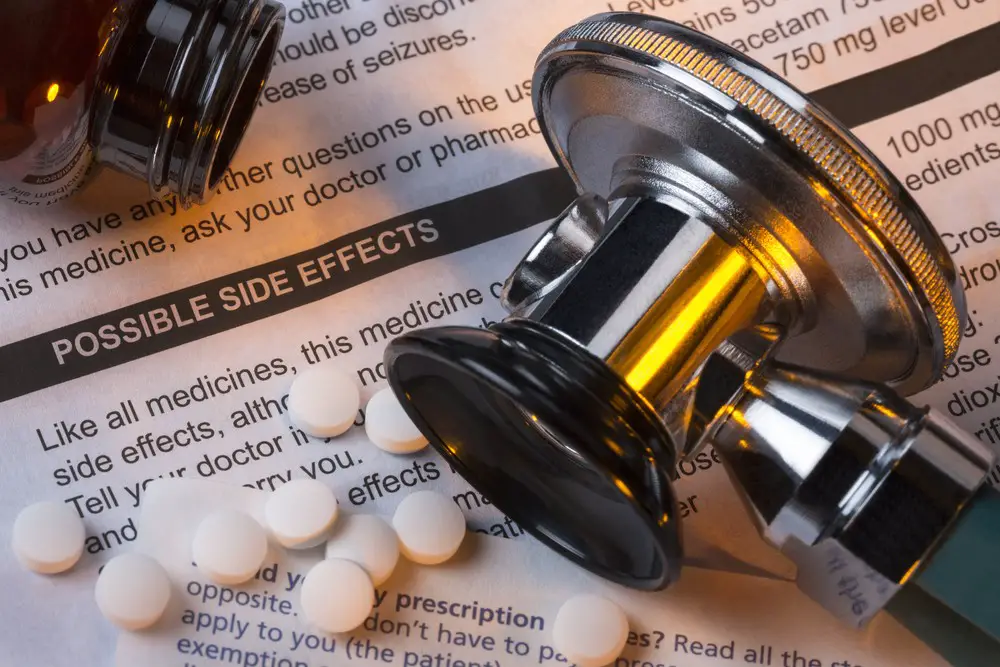Depression is a complex mental health disorder with various symptoms and manifestations that can impact every facet of an individual’s life, including their sexual health. For some, sexual activity may seem like a way to cope with or temporarily alleviate the sadness, numbness, and emptiness associated with depression. This article explores the relationship between sex and depression and how using sex as a coping mechanism might affect a person’s overall mental and emotional well-being.
Understanding the biological and psychological factors at play in both depression and sexual activity is crucial to gaining insight into the potential benefits and risks associated with this coping technique. This includes examining the role of hormones and neurotransmitters and the impact of age, gender, and medication on sexual health, among other factors. Additionally, it’s important to consider healthy alternatives such as exercise, communication with a partner, and seeking professional help to make informed decisions regarding the best course of action for dealing with depression.
Key Takeaways
- Understanding depression’s impact on sexual health is essential in evaluating sex as a coping mechanism.
- Factors such as hormones, age, gender, and medication can influence the relationship between depression and sex.
- Considering healthy alternatives and seeking professional help may lead to a more effective approach to coping with depression.

Understanding Depression
Depression is a common yet serious mood disorder affecting millions worldwide. It is characterized by persistent sadness, despair, and hopelessness that interfere with daily functioning and often impact relationships, work, and overall quality of life. Symptoms can vary in intensity and duration, but the negative effects on mental health are undeniable.
The human brain is a complex organ in which neurotransmitters regulate mood and behavior. In individuals with depression, the balance of these chemicals – such as serotonin, norepinephrine, and dopamine – may be disrupted, leading to mood fluctuations and impaired cognitive functioning.
A mental health professional, such as a psychiatrist, psychologist, or therapist, plays a crucial role in diagnosing and treating depression. Individuals experiencing depressive symptoms should consult a mental health expert who can recommend the appropriate intervention, typically psychotherapy, medication, or a combination of both.
It is important to note that depression is not always a stand-alone disorder. It sometimes coexists with other mental health conditions, such as bipolar disorder. Bipolar disorder is characterized by periods of extreme emotional highs (mania) and lows (depression), usually following a specific pattern or cycling between the two poles.
Treatment plans for bipolar disorder differ from those for unipolar depression, as they must also consider the risk of triggering mania with certain medications. Therefore, accurate diagnosis and tailored treatment approaches are crucial for effectively managing these conditions.
Understanding depression, its causes, and the brain’s role in regulating emotions is essential to cope with and treat this disorder effectively. Consulting with a mental health professional and exploring various treatment options can help individuals manage their depression and improve their overall well-being.

Sex as a Coping Mechanism
Sex can be used as a coping mechanism for some individuals experiencing depression. Engaging in sexual activity may temporarily relieve feelings of sadness, anxiety, or despair that often accompany depression. This can be due to the release of “feel-good” hormones, such as dopamine and oxytocin, associated with pleasure and bonding during sexual encounters.
Using sex as a form of self-medication can sometimes lead to sensation-seeking activities and sexual risk-taking. For example, someone might engage in casual sex with multiple partners or participate in unprotected sex. This behavior can result in unintended consequences, like sexually transmitted infections (STIs) or unplanned pregnancies, exacerbating mental health struggles.
On the other hand, some individuals might use sexual activity to develop healthy coping strategies. For instance, engaging in consensual, emotionally connected, and safe sexual experiences can foster feelings of intimacy and trust, which can benefit mental well-being. In these cases, sexual activity can contribute to a sense of self-worth and emotional stability.
It is essential to recognize that while sex can offer temporary relief for some individuals, it may not be a long-term solution for those grappling with depression. Professional help, such as therapy and medication, can address the root cause of the issue and provide sustainable coping mechanisms. In conclusion, sex as a coping mechanism for depression should be approached cautiously, as its effectiveness depends on the individual and the circumstances surrounding their sexual encounters.
The Role of Hormones and Neurotransmitters
When using sex to cope with depression, the interaction between hormones and neurotransmitters plays a crucial role. These chemicals directly regulate mood, pleasure, and overall mental well-being.
Serotonin is a neurotransmitter that contributes to feelings of happiness and well-being. During sexual activity, serotonin levels can increase, which may help alleviate some symptoms of depression. On the other hand, dopamine is another neurotransmitter in the brain’s reward pathway. As a person engages in sex, the released dopamine helps create feelings of reward and pleasure, further lifting their mood.
Apart from neurotransmitters, several hormones contribute to the connection between sex and mood regulation. One such hormone is the luteinizing hormone (LH), which has been found to have antidepressant-like effects when increased. During sexual activity, the levels of LH can surge, acting as a natural mood enhancer.
Endorphins are another set of hormones that significantly affect mood regulation. Often referred to as “feel-good chemicals,” they are released during physical activity, including sex. These endorphins can help combat stress and pain and contribute to a more positive overall mood.
In contrast, hormones such as cortisol and prolactin can negatively affect mood, as they have been associated with stress and depressive symptoms. Sexual activity can lead to decreased levels of cortisol and prolactin, which may help alleviate some feelings of depression.
To sum up, the interaction of neurotransmitters like serotonin and dopamine and the hormones LH, endorphins, cortisol, and prolactin paint a complex picture of how sex may help cope with depression. By engaging in sexual activity, individuals might experience increased mood-enhancing chemicals while decreasing those that promote negative emotions. While this may relieve depressive symptoms, it is important to remember that sex should not be the sole method of coping with mental health issues, and professional help is strongly encouraged.

Impact of Depression on Sexual Health
Depression can significantly impact sexual health, affecting various aspects such as libido, sexual desire, and sexual functioning. This can lead to various sexual problems for both men and women at different stages of their lives.
One of the major effects of depression on sexual health is a decrease in libido or sexual desire. When an individual suffers from depression, they may experience a lack of interest in sex due to the negative emotions and mental state associated with the condition. This can lead to relationship difficulties and a decline in overall well-being.
In addition to the decrease in libido, depression can also lead to various forms of sexual dysfunction. Men may experience erectile dysfunction or premature ejaculation, which can be directly or indirectly linked to depression. These issues can arise from the emotional stress associated with depression or the side effects of medication prescribed for the condition.
Women may also encounter similar sexual dysfunctions, such as difficulty achieving orgasm or general discomfort during sexual activities. Moreover, depression may exacerbate sexual health issues related to menopause. For instance, the hormonal changes during menopause can already weaken libido, and depression may further intensify this effect.
In conclusion, the impact of depression on sexual health is multifaceted, and addressing the root cause of depression is crucial in improving overall sexual well-being.
The Influence of Age and Gender
Research has shown that age and gender can impact how individuals use sex to cope with depression. Various factors, including hormonal fluctuations, societal expectations, and personal experiences, contribute to these differences.
For many men, societal expectations often encourage them to pursue sexual activity to prove their masculinity and demonstrate their success. In some cases, they may also use sex to distract from negative emotions or establish emotional connections without other forms of intimacy. However, the relationship between sex and depression may differ between younger and older men. Younger men may be more likely to engage in risk-taking behavior. In comparison, older men often face age-related challenges, such as declining health and changing social roles, which can influence their sexual experiences.
In contrast, women’s experience with sex and depression is heavily influenced by hormonal fluctuations at different stages of their lives. During hormonal changes, such as puberty, pregnancy, and menopause, women may experience fluctuations in their sexual desire and an increased risk of depression. Additionally, societal expectations can significantly affect how women cope with depression through sex. The stigma surrounding female sexuality and societal pressure to act modestly can lead to some women feeling guilt or shame about their sexual desires, further contributing to their depressive symptoms.
Gender identity can also influence how individuals use sex to cope with depression. For example, transgender and nonbinary individuals may face unique challenges in their sexual experiences, including societal stigma, discrimination, and inadequate access to healthcare. Consequently, these individuals may rely on sex to cope with their depression, pursuing sexual experiences that affirm their gender identity and help them feel a sense of belonging.
Understanding the influence of age and gender on the relationship between sex and depression can help mental health professionals provide more tailored treatment and support for their patients. By recognizing individuals’ specific challenges based on age and gender identity, clinicians can better address the underlying issues contributing to their depression and offer more effective coping strategies.

Medication and Its Side Effects
Antidepressants, particularly selective serotonin reuptake inhibitors (SSRIs), are commonly prescribed to treat depression. While they can help manage symptoms, these medications may also cause side effects that impact an individual’s sexual function.
For example, SSRIs can decrease sexual desire, difficulty achieving arousal, and difficulty achieving orgasms. As a result, people taking these medications might turn to sex to cope with their depression and its treatment-related side effects.
Viagra, on the other hand, is a medication specifically designed to address erectile dysfunction. Some individuals might find relief from sexual difficulties caused by SSRIs through Viagra. However, Viagra is not without its side effects, including headaches, flushing, nasal congestion, and dizziness.
Patients must consult with their healthcare provider to discuss possible side effects of any medication they use, including antidepressants and Viagra. A doctor may recommend a change in dosage or alternative medication that does not have such severe side effects on sexual function.
In conclusion, while sex can temporarily relieve depression symptoms for some individuals, relying on it to cope with medication side effects may not be an effective long-term solution. Working closely with a healthcare provider to find the right balance of medication management is critical to successfully managing depression and maintaining healthy sexual function.
Mental and Emotional Factors
Depression is a complex and multifaceted mental health condition, and using sex as a coping mechanism can involve various emotional and cognitive aspects. For some individuals, sexual encounters may help alleviate anxiety, stress, and anger by providing a temporary escape and release. However, it is essential to understand that this relief is often short-lived and does not address the root causes of these emotions.
Self-esteem and self-worth play a crucial role in their mental well-being. Engaging in sexual activities may boost one’s confidence momentarily, but it is crucial to recognize that a genuinely healthy self-image goes beyond the physical domain. Cultivating a strong foundation of self-worth is necessary for long-term resilience against depression.
Feelings of guilt and worthlessness are common symptoms of depression. While some may find comfort and validation through sexual intimacy, others may experience increased negative emotions or even regret after sex. This can create a vicious cycle where individuals continue to seek validation without addressing the underlying issues contributing to these feelings of guilt and worthlessness.
Irritability is another prevalent symptom of depression that can indirectly influence one’s sexual behavior. If people resort to sex to manage irritability, they must acknowledge that this coping strategy might mask the need for more appropriate mental health support. It is crucial for individuals struggling with depression to seek professional help and explore suitable, long-term coping methods that address the root causes of their emotional symptoms.
While sex is a natural aspect of human relationships, it is essential to consider the various mental and emotional factors contributing to its use as a coping mechanism for depression. Understanding the complexities surrounding the connection between sex and depression can help individuals navigate healthier pathways to cope with the challenging symptoms of this mental illness.
Good Communication and Safe Sex
Good communication between partners is essential when using sex as a coping mechanism for depression. Both individuals must express their thoughts, feelings, and boundaries to maintain a healthy and positive experience. Open dialogue allows partners to understand each other, remove misunderstandings, and establish trust.
Practicing safe sex is crucial in protecting physical and emotional health. One of the primary concerns when engaging in sexual activities is the risk of contracting sexually transmitted infections (STIs). To reduce the risk, couples should use contraceptives, such as condoms, and get themselves tested regularly. They should also be honest about their sexual history and share relevant medical information.
Consulting a healthcare professional, such as a therapist or physician, may provide valuable guidance on the potential benefits and risks of using sex to cope with depression. Professionals can offer expert advice on maintaining a healthy sexual relationship, precautions to be taken when dealing with STIs, and recommending additional treatments or lifestyle changes to improve mental health.
By prioritizing good communication and practicing safe sex, individuals can build a strong foundation for a healthy, supportive, and satisfying relationship, helping to alleviate symptoms of depression and improve overall well-being.
Exercise and Other Healthy Coping Mechanisms
Engaging in regular physical exercise has been shown to have a positive impact on mental health and overall well-being. It is an effective way to cope with depression as it helps alleviate symptoms by releasing endorphins, natural mood lifters. Exercise also helps to lower stress hormones such as cortisol and adrenaline, promoting relaxation.
Moreover, physical exercise can improve self-esteem, confidence, and resilience, making it an important part of any depression treatment plan. Some easy ways to incorporate exercise into one’s routine include walking, cycling, swimming, or participating in group sports.
In addition to exercise, incorporating other healthy coping mechanisms can greatly benefit individuals with depression. For example, relaxation techniques like deep breathing, progressive muscle relaxation, and mindfulness meditation can help reduce stress and promote overall mental well-being.
Aside from exercise and relaxation, seeking intimacy and emotional connections with others can be essential in combating depression. Close relationships with friends and family can provide a support system and an opportunity for sharing feelings and problems.
Lastly, another healthy coping mechanism is enjoying activities that bring pleasure and personal satisfaction. Hobbies such as reading, painting, or listening to music can offer a sense of accomplishment and happiness that might otherwise be lacking.
Integrating regular exercise, relaxation techniques, intimacy with others, and enjoyable activities into one’s life can create a well-rounded approach to coping with depression and improving overall mental well-being. Incorporating these healthy coping mechanisms can complement other treatments for depression, aiding in a more comprehensive and effective recovery process.
The Role of Externalizers, Internalizers, and Genetic Factors
In understanding how individuals use sex to cope with depression, examining the roles of externalizers, internalizers, and genetic factors is important. Externalizers tend to express negative emotions through external behaviors, while internalizers suppress or internalize them. These different coping mechanisms can impact how people use sex to deal with depression.
For externalizers, engaging in sexual activity may serve as an outlet for expressing emotions and coping with depression. They might seek sexual encounters that provide an adrenaline rush or a sense of power, which can briefly alleviate depressive symptoms. It is important, however, to recognize the potential for these relationships to become unhealthy or even abusive.
On the other hand, internalizers may use sex as a means of self-validation or emotional connection, feeling the need to be close to someone to fend off feelings of depression. This could lead to unhealthy relationship patterns or dependencies, as the individual seeks emotional support primarily through sexual encounters.
Genetic factors also play a significant role in sex and depression. Studies have shown that individuals with a certain dopamine receptor gene variant are more likely to engage in risky sexual behaviors as a coping mechanism for depression. Dopamine receptors regulate emotions and reinforce behaviors, so this genetic predisposition could further increase the likelihood of using sex to cope with depressive symptoms.
In summary, externalizers, internalizers, and genetic factors impact how individuals use sex to cope with depression. Understanding these factors makes it possible to develop healthier coping strategies and educate individuals on the risks and potential consequences of using sex to manage depressive symptoms.
Complications Related to Using Sex as Coping Mechanism
Using sex as a coping mechanism for depression has unique complications that individuals should be aware of. The act of seeking sexual engagement to alleviate negative emotions can lead to a variety of issues, including both psychological and physical consequences.
One concern is the potential for developing compulsive sexual behavior. When someone relies on sex for emotional regulation, it can become an unhealthy habit, a compulsive act they cannot control. This compulsive behavior can negatively affect their relationships, self-esteem, and mental health.
Sensation-seeking individuals who pursue novel and intense experiences might turn to sex to distract themselves from depressive feelings. However, engaging in risky sexual behaviors to cope with depression can result in further emotional distress and potential harm.
Moreover, using sex as a coping mechanism often goes hand in hand with alcohol consumption. Alcohol can reduce inhibitions and increase sexual interest, leading to impulsive decisions and impaired judgment. Combining sex with alcohol might exacerbate depression in the long run, increasing the risk of unprotected sex and sexually transmitted infections.
On top of that, using sex as a coping mechanism can create an unhealthy reliance on others for emotional well-being. This codependency can lead to unrealistic expectations and increased pressure on relationships, potentially driving others away or causing breakups.
Furthermore, individuals may experience a loss of control over their sexual behavior as they become dependent on sex for emotional regulation. This can promote feelings of guilt and shame, which can fuel depression and inhibit personal growth.
In summary, using sex to cope with depression presents several complications, including compulsive sexual behavior, sensation-seeking risks, connection with alcohol misuse, and potential harm to relationships. Understanding these risks can help individuals make informed decisions about coping mechanisms and seek healthier alternatives to manage their depressive symptoms.

Seeking Professional Help
People experiencing depression may sometimes turn to sex as a coping mechanism. While sex can provide temporary relief, it’s important to address the root cause of depression and seek professional help. Consulting a mental health or healthcare professional will provide a more holistic and long-term solution.
A mental health professional, such as a psychiatrist or psychologist, will help identify the severity of the depression. By providing psychotherapy services, they can guide individuals toward understanding their condition and developing effective coping strategies. These therapies aid in fostering open communication and identifying triggers that may lead to an unhealthy dependence on sex.
Sometimes, healthcare professionals may recommend medical tests to detect any underlying physical conditions contributing to depression. For instance, imbalances in blood flow or hormonal levels can potentially exacerbate depressive symptoms and should be treated accordingly. With a comprehensive and personalized treatment plan, individuals can address the root causes of their depression and improve their overall mental well-being.
Remember, seeking professional help is crucial to addressing depression effectively and avoiding long-lasting negative effects on one’s emotional and physical health. Mental health professionals and healthcare providers have the knowledge and expertise to develop individualized treatment plans, incorporating psychotherapy, lifestyle adjustments, or medications if needed. Reaching out for help is the first step toward better mental health and a balanced life.
Combating Fatigue and Hormonal Changes
Dealing with fatigue and hormonal changes can be challenging, particularly for individuals experiencing depression. Engaging in sexual activity has been shown to help regulate hormones, improve blood pressure, and alleviate fatigue, ultimately positively impacting mental health.
Sexual activity can lead to the release of endorphins and other hormones, such as oxytocin and serotonin. These hormones aid in reducing stress and enhancing mood, which can be especially beneficial for those dealing with depression. Regular sexual experiences may also help stabilize hormonal fluctuations, making it a potential coping mechanism for those going through menopause or other hormonal changes.
In addition to hormonal benefits, sexual activity can improve blood pressure. Intimate experiences cause the heart rate to increase, promoting better circulation throughout the body. This improvement in blood flow can positively affect overall well-being, enhancing energy levels and combating fatigue.
It is important to acknowledge that everyone’s experience with depression is unique, and sexual activity may not be the perfect solution for everyone. However, for many individuals, incorporating sexual experiences as part of their overall self-care strategy can effectively manage hormonal changes, reduce fatigue, and support mental health.
The Influence of Self-Esteem and Worth on Sexual Health
Self-esteem and self-worth play significant roles in an individual’s sexual health. Feeling confident and valuing oneself positively can lead to healthier sexual behaviors and better communication with partners. Conversely, low self-esteem can contribute to risky sexual behaviors and difficulty establishing and maintaining satisfying sexual relationships.
Individuals with high self-esteem often approach their sexual experiences with ease and assurance. They tend to be comfortable communicating their desires and boundaries, paving the way for fulfilling experiences. Furthermore, high self-esteem can encourage proper sexual healthcare, such as engaging in regular check-ups and practicing safe sex.
On the other hand, low self-esteem can negatively impact sexual health. A person with low self-worth may engage in sexual activities out of a desire for validation or to please others, sometimes disregarding their needs and preferences. This can result in a higher risk of contracting and transmitting sexually transmitted infections (STIs) and other negative consequences.
In addressing depression, it is vital to consider the role of self-esteem and self-worth as they relate to sexual health. To improve one’s overall sense of self, it is essential to prioritize mental health, engage in activities that promote self-confidence, and surround oneself with supportive people. As self-esteem and self-worth increase, healthier sexual behaviors and relationships tend to follow suit, ultimately benefiting mental and physical well-being.
Frequently Asked Questions
Why do I seek sex when feeling down?
People may seek sex when feeling down to find temporary relief from negative emotions. Engaging in sexual activities can release endorphins, which improve mood and alleviate depressive symptoms. However, relying solely on sex for emotional well-being can lead to an unhealthy coping mechanism.
How does using sex for coping with anxiety related to depression?
Using sex as a coping mechanism for anxiety can be related to depression because both conditions might share similar triggers or underlying emotional issues. While sex can temporarily relieve anxiety, it may not address the root causes of depression or anxiety. Sometimes, it may even exacerbate depression symptoms if one becomes dependent on sex for emotional relief.
Is sex a common trauma response?
It is common for individuals who have experienced trauma to engage in sexual activity as a response to their experiences. This behavior may be an attempt to regain control or intimacy lost during the traumatic event. However, using sex as a coping mechanism might not always be effective or helpful for healing from trauma.
Can sex help in alleviating depression symptoms?
Sex has the potential to temporarily alleviate some depression symptoms by releasing endorphins and promoting feelings of closeness and intimacy. However, it should not be considered a long-term solution or a substitute for therapy, medication, or other forms of treatment for depression.
How do men specifically use sex to cope?
Men might use sex to cope with depression, stress, or anxiety to experience pleasure or escape their emotional issues. They may also view sex as a way to assert their masculinity or feel more in control. It is important to note that using sex as a coping mechanism may exacerbate existing emotional issues or contribute to unhealthy interpersonal relationships.
Am I replacing emotional fulfillment with sexual activity?
It is possible to replace emotional fulfillment with sexual activity if one relies exclusively on sex for happiness or emotional well-being. Focusing solely on sexual pleasure to cope with depression or anxiety can lead to feelings of emptiness and disconnection. Addressing emotional needs through therapy, support from loved ones, or self-reflection can promote healthier coping strategies and well-being.
- How the Right Mattress Choice Can Minimize Daily Stress - February 27, 2024
- How Sleep Disorders Affect Your Well-Being - February 27, 2024
- How to Leverage Technology to Bring Stress Under Control - February 27, 2024
This site contains affiliate links to products. We will receive a commission for purchases made through these links.




